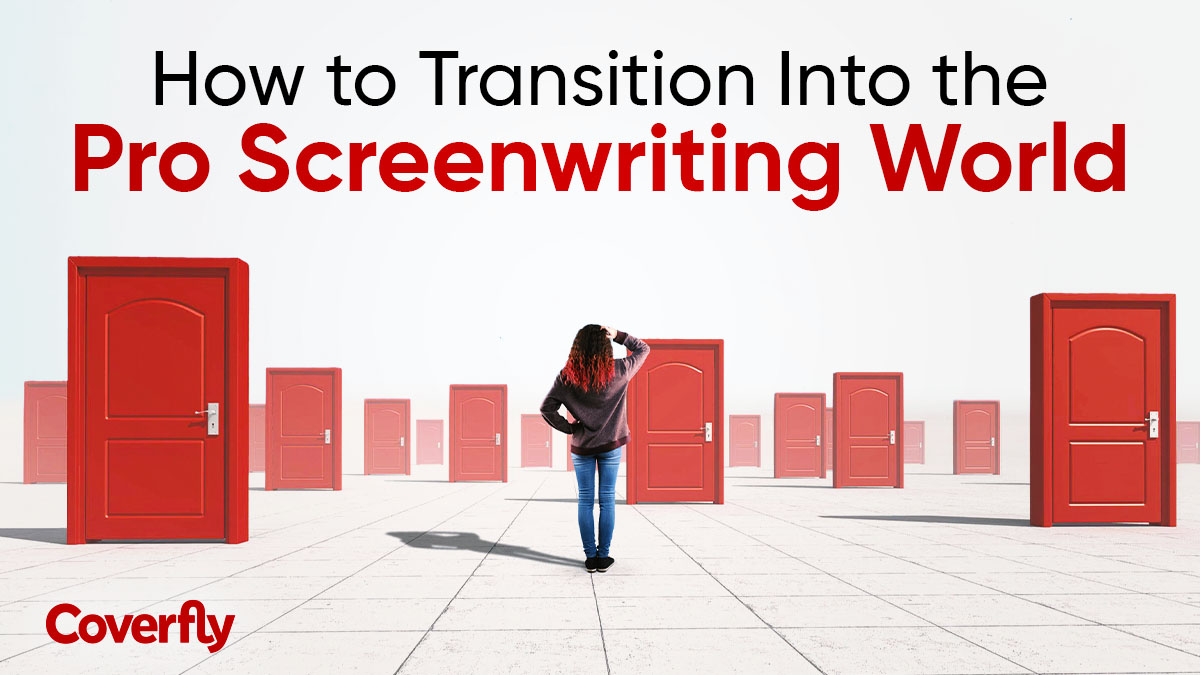Quality feedback on a new screenplay can be crucial to increasing its quality. A skilled objective eye can spot flaws, weak spots, and hidden strengths that you might miss. Many writers send out each new version of their script to a paid service the way one would go in for a health checkup -- it’s an x-ray of the story’s bones and a critique of how it plays.
There are several different types of coverage, notes, and feedback you can seek out. You can have friends tell you what they think, swap scripts with other writers, hire a paid service, hire a consultant or story guru, or get industry notes from a studio, production company, or agency.
There are also studio-facing notes in which the strengths and weaknesses of the story are ruthlessly dissected, as well as writer-facing notes that are more encouraging, working constructively to identify the weaknesses and correct them, as well as the strengths and amplify them.
Despite the myriad of coverage options available, let's focus on how to maximize what you can get out of paid services. But first...
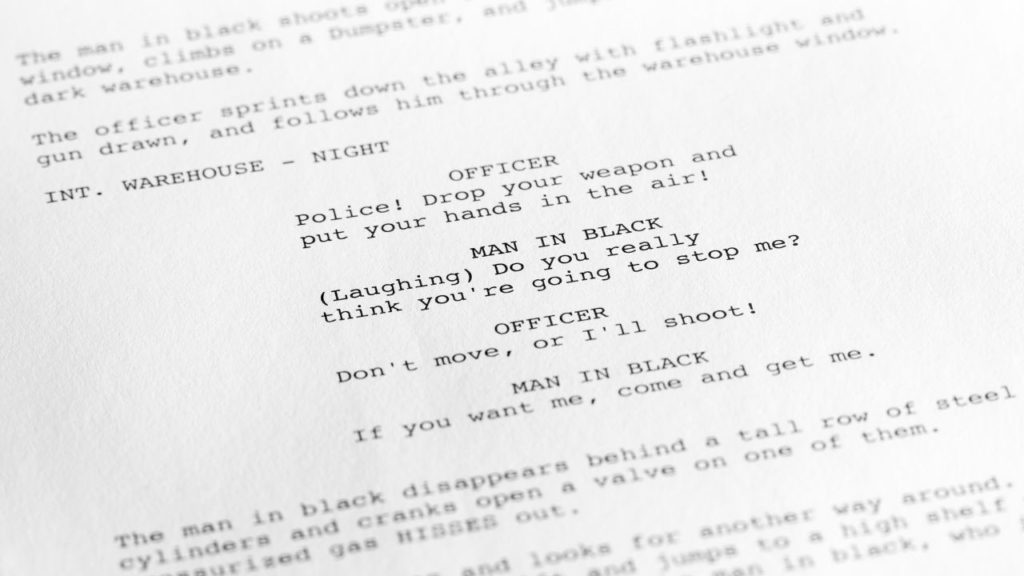
Why Would I Need Script Coverage?
Screenwriting is much harder and more complex than most people appreciate. Writing drama in any genre is generally considered the most elusive of all the literary disciplines.
Dramatizing a Story is Notoriously Tricky
Not only does the story have to be good but it has to work as a visual and cinematic experience, performed by actors on a soundstage or set, and it has to grip the audience consistently, with no dead spots.
Always remember that 99% of all scripts are rejected. That’s a truly astonishing number. Imagine if 99% of commercial airlines crashed because engineers couldn’t consistently make them work. Most people are not good at making scripts work, and many don’t suspect that they lack deep craft in creating effective drama.
And just because your screenplay has all the parts it’s “supposed to have” doesn’t mean it will work. Like a paper airplane that won’t fly right or a pop song that just doesn't sound right, that special something can be devilishly elusive. Some screenplays look great on paper but fail miserably on the big screen and no one knows why.
Read More: Tips on Receiving Notes from Producer & Entertainment Exec Jonny Paterson
Advantages of Paid Script Coverage Services
Paid coverage services have certain advantages over others -- studio notes, for example, read scripts with a mandate from their boss to find certain things or fill their production needs, so getting neutral feedback might be a challenge.
Here are a few things that set paid coverage services apart:
- Anonymity: Being anonymous inspires more honesty
- Neutrality: Paid services don't have a vested interest in your project, so notes tend to be a rigorous diagnostic by an experienced, neutral professional.
- Spotting Problems: These types of notes tend to focus on identifying problems rather than suggesting solutions. This can be quite helpful because getting a solid grasp of a problem can sometimes be half the battle. A complex script problem can be slippery and hard to pin down, but the very act of getting crystal clear on exactly what you’re wrestling with often leads to fresh clarity which can open new angles in the story.
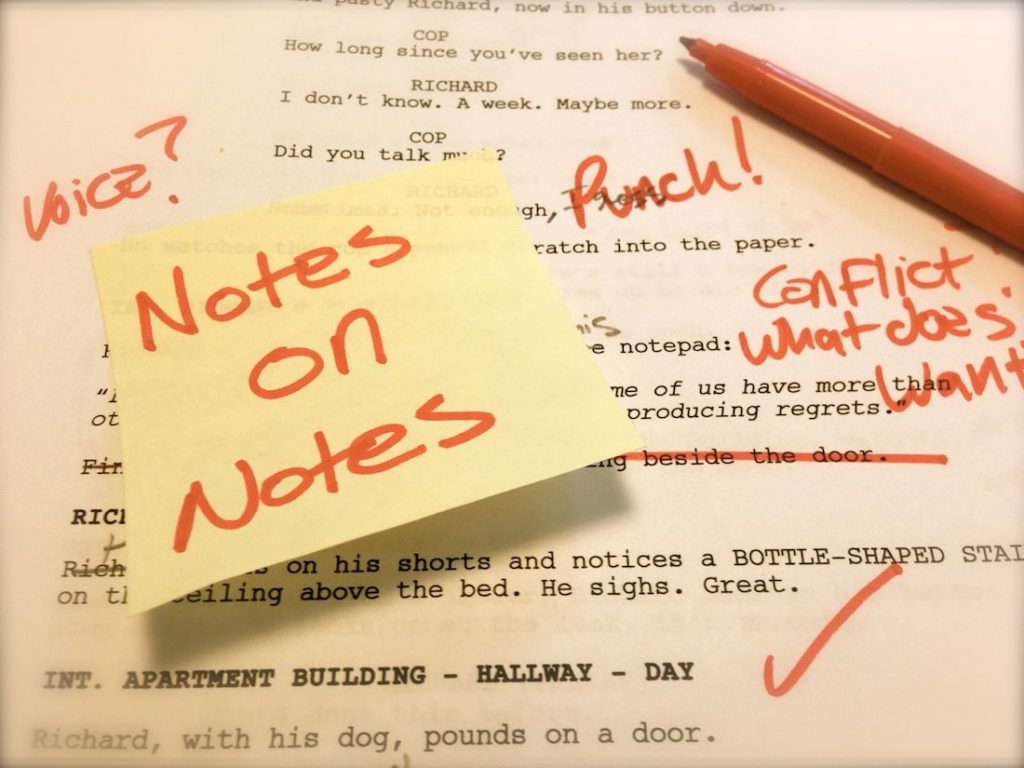
What You Should Know Before Getting Coverage
A Clear Understanding of a Problem Can Be Half the Battle
As you grapple with the feedback you’ve gotten, the very act of defining the specifics of the problem can shed light on potential solutions. The more clearly and specifically you can articulate a problem, the more you perceive or construct potential solutions. The old saying is that the better the question, the better the answer.
Getting Notes on Your Script Can Be Unsettling
Getting feedback on a script is not always pleasant. Not everyone has the experience that M. Night Shyamalan did when he turned in the script for The Sixth Sense. His producer told him to not change a comma and just go film it. Often notes that feel negative can be a gut punch after you’ve spent months creating, developing, constructing, and writing it.
Feedback can be confusing, infuriating, depressing, misleading, and occasionally destructive—and it can be encouraging, constructive, clear, insightful, and deeply creative. You’ll probably encounter all of these throughout your career, and it’s good to be able to navigate the highs and lows.
Read More: Mastering the Art of Receiving Notes with Nicholas Bogner, Lit Manager and Producer
Cultivate a Professional Attitude
Learn to temper your responses to help stay on an even keel. Not wanting to ever get bad notes is like a boxer expecting to never take a punch. And while encouraging notes are great, bear in mind the old saying that Los Angeles is the only place in the world where you can die of encouragement. Cultivate a professional attitude and work to reinforce it in everything you do.
To have a sustained career, you need to be a good writer, but it’s also important to be consistent, reliable, and good to work with. Think about the kind of people you’d want to hire and who you wouldn’t.

The Best Way to Take Advantage of Coverage
Treat feedback as a general diagnostic that can help you see how other people react to your story. You’ve been wrapped up in it for so long that you have no objectivity left. You’ve willed it into existence and now it’s time to see if your writing conjures your vision in other people.
Be glad to get objective honest feedback. Your mother saying she loves it isn’t useful (unless she's a professional script reader). Even if notes don’t feel right, dig into them in case they’ve stumbled onto a problem you hadn’t suspected. But also lean into the notes that seem best able to steer you in the direction that improves your script.
Just Because Notes Can Be Subjective Doesn’t Mean They’re Wrong
If you select a coverage service that you trust, then you’ll get professional insight into what makes your script tick and how it plays in the world. Obviously, each reader is subjective, but they work hard to give your script an even read and evaluate it on its merits rather than on their personal tastes. But if a number of different readers hit on the same perceived weakness or flaw, then it’s not subjective.
Each person will react to notes in their own way, but ultimately you pay for a practiced eye to give you their impression of how your story plays, and what they think are its strengths and weaknesses. It’s your responsibility to evaluate their feedback and make the best use of it. It’s your script, so take what you need. But be aware that notes with which you don’t agree can also contain dynamic insights.
Some People Want Feedback, But Don’t Care If You Like Their Script
There's a story about an A-list writer who, if you read his script, only wanted you to recount back to him the story you just read. He didn’t care whether you liked it or not and he didn’t want any notes from you. All he wanted to know is if you experienced the story that he worked so hard to get down on paper.
Ed Solomon Has a Cool Take on Script Coverage
The screenwriter of Men in Black, Ed Solomon, is fascinated with how readers can misinterpret a story, describing this as a wonderful journey of discovery. What the readers “see” might be better than what you wrote, or can trigger new avenues or possibilities that improve the story, like a “happy accident.” He says if you can dance with their fortuitous ideas instead of clinging to your ego, then you can rethink how you’re telling the story.

How to Incorporate Notes into Your Script
Obviously, the more craft you have as a dramatist, the more effectively you’ll be able to utilize good feedback to make your screenplay work. A major league pitcher getting feedback from a top-level coach can incorporate that idea much more substantially than a little league pitcher can.
Disruption Can Be a Game Changer in a Good Way
Allow yourself to be derailed here and there, to let a disruptive idea get inside your thought process and shake things up. It can be hard to get out of your own storytelling rut and see things outside your own perspective. Sometimes a hard kick is required to change gears and you should welcome it now and then.
You Can Experiment with Alternate Ideas Without Committing to Them
Work with the outline of your script as you contemplate changes. Print an extra copy of your screenplay’s skeleton and play with it. And because it’s an extra copy, you can experiment quite freely. If it doesn’t end up working, then just chuck it. Play, try new things, get in trouble, and explore. Be willing to adjust the bones of your script.
Make tentative choices and see where they might take you. Feel your way through new possibilities. Let the notes serve as a creative muse, as a catalyst that might trigger new ideas or fresh insight.
How to Deal with Conflicting Notes
People’s opinions can vary wildly. Think about a movie that you consider to be genius, but others hate with a passion—or vice versa. Some people will “get” your story more than others. Also bear in mind that readers have different specialized skills, so they’ll notice different things in your script.
Imagine that you have a medical ailment and visit different specialists and alternative healers. You might get a variety of opinions, with people saying the cause is your diet, your hormones, your chi, your gut, your exercise routine, or your spinal alignment—and they might all be right. As a writer, you want to improve all the aspects of your story.
Try to Gain Insight That Can Improve Your Screenplay
Remember that your main objective with feedback is to gain insight into how you can make your script better. If it didn’t need work then you wouldn’t have sent it out for opinions. So pay real attention to what they say, even if it feels wrong. Dig deep to see if they hit on a problem that you hadn’t suspected.
Be confident about the process. Be brave enough to stare down the barrel of a gun that threatens your ideas, challenges your assumptions, and makes you rethink some of your story’s basic elements.

Learn to See the Note Beneath the Note
Learn to perceive the note beneath the note. It can often be difficult for a reader to clearly articulate a problem, especially if it’s a compound, complex problem. Dig into it and feel your way through what they’re trying to say in case they’re on to something. And even if you hate the note, take it as an opportunity to see how an objective perspective experiences your material.
Even someone getting your story entirely wrong might open up a wildly unexpected new approach for you. Like Ed Solomon said, sometimes an offbeat interpretation will suggest a fresh path to explore. Keep a weather eye out for such fortuitous serendipity because it does happen regularly.
Stay in Close Contact with What First Electrified You About Your Story Idea
Keep in touch with your original intention for the story and follow the notes that move you toward the best version of that. But it takes work to stay connected with the original spark that drew you to the story. It’s easy to lose sight of it, and sometimes that first jolt of inspiration is the most vivid thing in the whole process, with every rewrite watering it down more and more.
Every once in a while, take some time to reconnect with the bolt of lightning that got it all started. A jagged raw story can have much more dramatic power than the refined thing it’s morphed into. Don’t let a dangerous wild animal of a story get turned into a domesticated house pet.
What Is the Process of a Typical Reader/Analyst?
When evaluating a script, a reader is going to look for three fundamental, basic things:
 A progressing plot that gives the story an engine
A progressing plot that gives the story an engine- A protagonist(s) that grow over the course of the story
- An understanding of the genre the script is working in (as well as any clever ways in which the tropes of the genre are subverted).
This will serve as the foundation for the writer’s exploration of other areas of the script that are strong or could be improved, which can range from the script’s act structure to its marketability.
The more scripts an analyst has read, the stronger their work is. This is because they have seen so many different iterations of elements of scripts that work and do not work and can translate this information to new material. Analysts can take this context and use it to evaluate a script on its own merit, giving more informed feedback. Having a large library of scripts is a really helpful asset to have, and allows me to recognize things in screenplays that may or may not be working.
Arguably as important as generating and compiling notes and feedback is communicating it constructively. Tone is the mark of a strong analyst, as a tightrope must be walked between being sycophantic and giving genuine feedback. A lot of this comes from writing style (for instance, never use the word “unfortunately” and refer to actions that “we” should take), which is something that industry readers have to learn to adjust after giving notes facing the company they worked for instead of the reader.
Additionally, it's good for readers to start coverage on a positive note, which is something that is going to make the writer more open to the criticism that the script receives throughout the coverage. Readers try to be as specific as possible, citing micro examples of macro issues. Finally, giving suggestions on improvements can be a difficult task, as writers may reject notes if they are surprised by the suggestions presented by analysts. Readers consider many potential suggestions before putting them into the notes; even if a writer does not agree, hopefully, this can spark the change they want to make and allow the notes to be actionable in a positive way.
Why Is the Quality of Feedback All Over the Place?
It goes right back to how hard it is to create, develop, construct, and write screenplays that work. Whether it’s a goofy comedy, a brutal thriller, or an action story, it must work dramatically and visually.
Not everyone is a highly-trained script analyst, and they’re doing the best with what they know. But because these kinds of notes are diagnostic, you’re seeking an objective look at something with which you’re too involved to evaluate well.
An Expert Eye is Great, But Sometimes Any Feedback Can Work
You want a practiced eye on your script, someone who sees more than the normal person; but that’s not always easy to find. And even a crude sonar image can reveal a rich shipwreck on the ocean floor. It doesn’t have to be a state-of-the-art spectroscopic analysis to articulate your script’s problem.
Also, even people who perceive problems in your script may struggle to articulate what it is clearly. Some problems are complex with multiple factors, like the core idea is weak but still intriguing, while the structure is flawed but elusive, the characters are dynamic but lacking a certain something, and the ending is powerful but doesn’t ring true.
Beware of Charlatans Claiming Expertise
And just like people with no life experience advertising themselves as life coaches, people who only know the jargon of script readers claim to be qualified script doctors. Start with recommended entities and choose wisely to avoid grifters or charlatans.
How Useful Are Notes If They Only Point out Problems and Not Solutions?
Bear in mind that someone does not have to be an expert in plot construction, story, and character to know a bad screenplay when they see it. An 8-year-old can watch a movie and tell you it stinks, and be correct. Most doctors can tell you that you have cancer, but not many can cure it.
Diagnosis is easier than curing, although some diagnoses are more discerning than others. But getting deeper notes is a consultation rather than feedback. If you need that, your paid service may offer that option.
And again, clearly articulating a script’s problems can give you fresh insight and help you get a better grip on it which can make all the difference. A simple “aha” moment can sometimes be all that’s needed to catalyze a cascade of potential solutions.

Why Do Notes Keep Hitting Me in My Sore Spots?
Because your blind spots as a storyteller can coincide with your own blind spots as a person. Psychological aspects of your own personality that you need to avoid or lie to yourself about can crop up in how you tell a story. If it’s hard for you to look at a particular aspect of life, then other people might notice it in how you craft a story.
Your Subconscious Fears Can Shape Your Writing
In the same way that a person’s fears can shape their actions and their outlook on life, their unconscious tendencies can shape the stories they tell. So, like actors, screenwriters should be able to face their fears and enter into a dialog with them, rather than bury their heads in the sand.
When to Complain About Script Coverage and When Not To
If you dislike the notes, then you certainly have the right to complain, but it’s good to know when it’s okay to complain and when it’s not.
 When to Complain
When to Complain
- If they clearly didn’t read the script
- If they were disrespectful or derogatory
- If they veer too far into personal taste and preference (Example: "The writing was good, but I dislike fantasy.")
When NOT to Complain
- When they didn’t “get” what you’re going for
- When your score is lower than you usually get
- When they’re working hard to offer good suggestions, even if you don’t agree with them
- When the reader isn’t specialized enough
- When a reader doesn’t “get” a key moment because maybe it wasn’t on the page clearly
- When notes vary because each reader brings different sensibilities and expertise
Fight for the Best Version of Your Screenplay
So learn to work with feedback, using those notes that help you improve your writing and exploring the ones that don’t feel right in case there’s something solid there. It’s very common to have blind spots about your own writing, and notoriously tricky to see it objectively. Welcome unexpected views about your script, with some misinterpretations offering accidental new options for how you shape your story. Cultivate professionalism, be brave, and train yourself to maintain an even keel. That way you evolve as a writer with whom people want to work.
Listen to your story and see how it wants to grow and evolve, and listen to input from people whose opinions you respect. Value fresh eyes that see the obvious which you hadn’t yet noticed. And remember that the notes are not always what you want to hear, but learn to discern notes that can improve your story.
You’ll also discover strengths in your material that you hadn’t suspected and you can reinforce and amplify them to make your screenplay even better. Treat the notes as a catalyst or trigger that can launch you into the next dimension of your evolving story and you’ll tend to get the best out of them.
Where Should You Go to Get Paid Script Coverage?
There are many paid coverage services out there and it can be difficult to find which ones not only offer constructive notes that address real problems in your script but are also worth the money.
Coverfly recently unveiled its Coverage Marketplace, which is designed to put all of the best, most trusted coverage service providers all in one place. You'll be able to see each service's unique features, like turnaround times, genre and format-specific options, and any add-ons you can get, as well as actual examples of what each coverage option looks like. Also, you can purchase coverage without ever leaving Coverfly.
 And, here's a great added benefit for those of you who are Coverfly members -- getting strong scores from these Coverfly-qualifying coverage services will have a positive impact on your Coverfly rank, which will help maximize your exposure to industry professionals.
And, here's a great added benefit for those of you who are Coverfly members -- getting strong scores from these Coverfly-qualifying coverage services will have a positive impact on your Coverfly rank, which will help maximize your exposure to industry professionals.


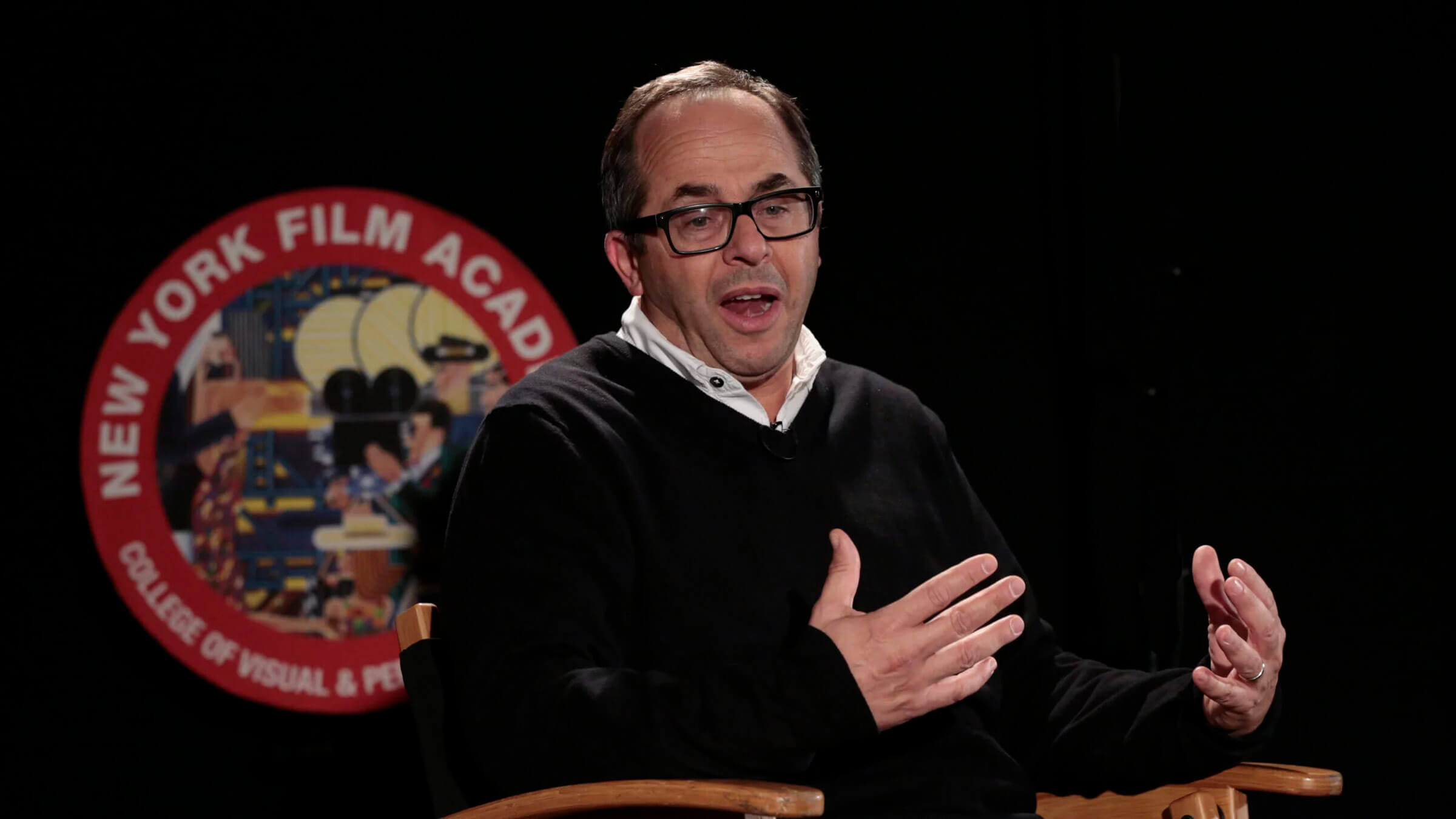








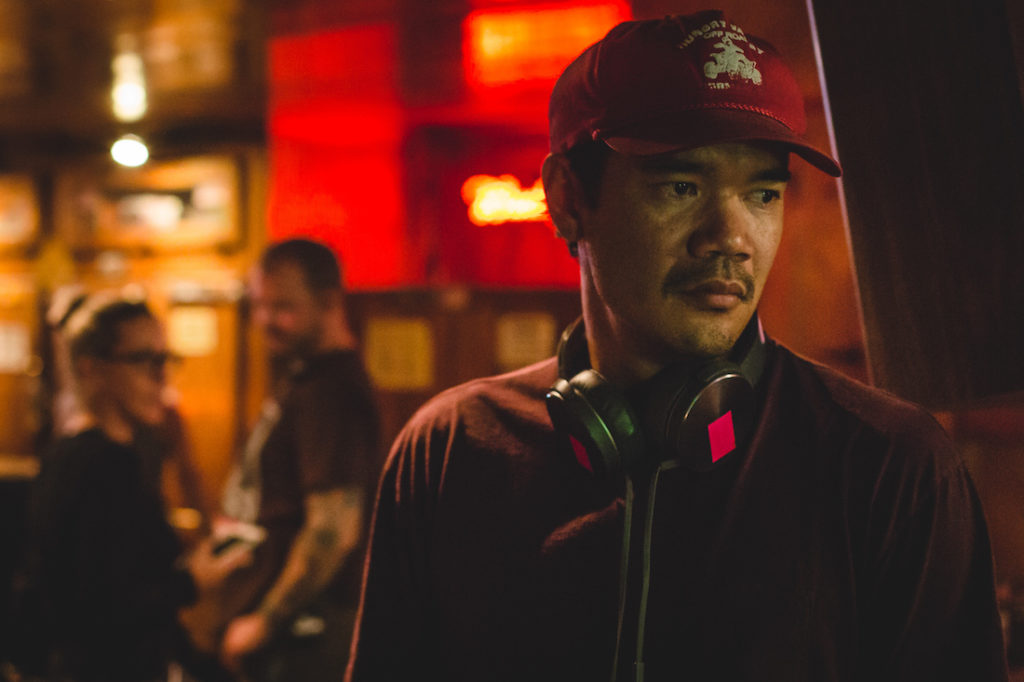

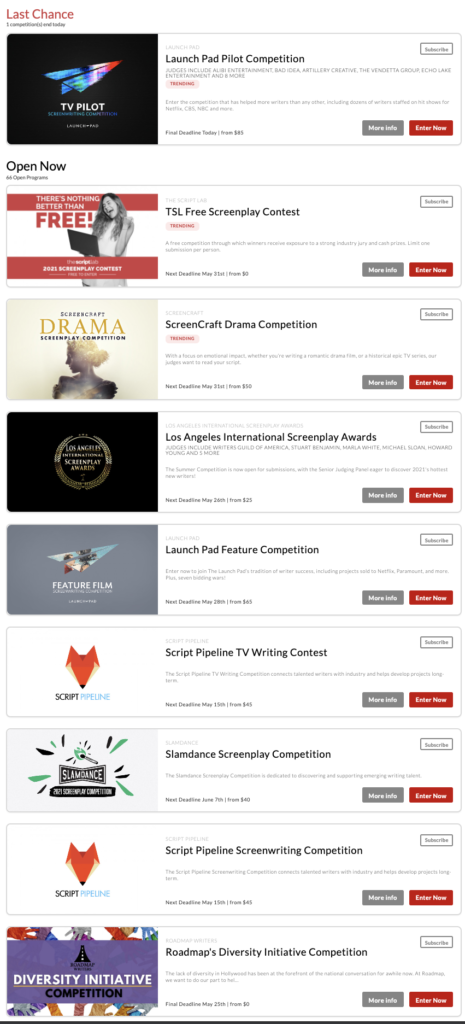





 A progressing plot that gives the story an engine
A progressing plot that gives the story an engine
 When to Complain
When to Complain




 Ariel Relaford is a screenwriter, podcaster, and digital marketer based in Orange County, California. Prior to her current role in automotive technology, she developed strategic marketing campaigns for clients including Netflix, Lionsgate, Disney, ABC, HBO Max, and STX Entertainment.
Ariel Relaford is a screenwriter, podcaster, and digital marketer based in Orange County, California. Prior to her current role in automotive technology, she developed strategic marketing campaigns for clients including Netflix, Lionsgate, Disney, ABC, HBO Max, and STX Entertainment.